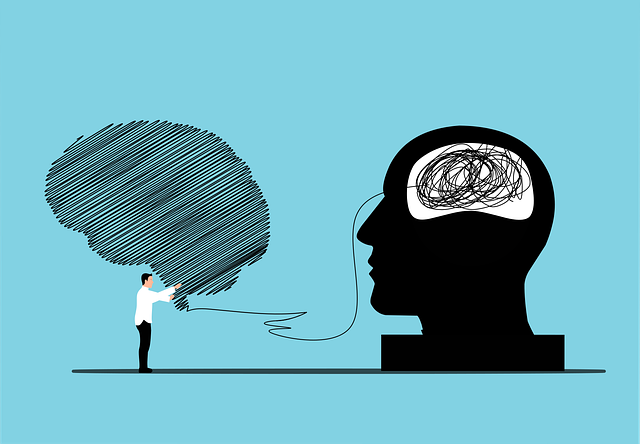Comprehensive anxiety disorder treatment combines psychotherapy, medication, lifestyle changes, and support groups, with cognitive-behavioral therapy (CBT) as a key component. CBT helps individuals challenge negative thoughts, face social triggers, and manage daily anxiety effectively. Integrative therapy programs offer personalized solutions using various modalities like mindfulness practices, exposure therapy, relaxation techniques, and stress management strategies. Long-term prevention involves maintaining coping strategies, regular self-care routines, and social support to reduce anxious episodes and improve overall mental well-being.
Discover effective solutions for managing comprehensive anxiety disorder and panic disorder through advanced therapy programs. This article explores tailored treatments, from understanding the nuances of each condition to uncovering proven approaches like cognitive-behavioral therapy (CBT) and exposure therapy. We delve into integrative care for co-occurring disorders, emphasizing holistic long-term management and prevention strategies. Unlock insights into overcoming these challenges once and for all with targeted anxiety disorder treatment methods.
- Understanding Comprehensive Anxiety Disorder Treatment
- Uncovering Effective Panic Disorder Therapy Programs
- Integrative Approaches for Co-occurring Disorders
- Long-term Management and Prevention Strategies
Understanding Comprehensive Anxiety Disorder Treatment

Comprehensive Anxiety Disorder Treatment involves a multi-faceted approach designed to address the root causes and symptoms of excessive, persistent worry and fear. This often includes a combination of psychotherapy, medication, lifestyle changes, and support groups tailored to the individual’s specific needs. The primary goal is to equip individuals with coping strategies to manage their anxiety effectively in daily life.
One key component of GAD treatment is cognitive-behavioral therapy (CBT), which helps people identify and challenge negative thought patterns contributing to their anxiety. For social anxiety, specialized techniques focusing on gradual exposure to feared situations can be highly effective. Additionally, mindfulness-based practices and relaxation exercises are integrated into many anxiety disorder treatment programs to foster a sense of calm and improve overall well-being.
Uncovering Effective Panic Disorder Therapy Programs

Uncovering effective panic disorder therapy programs is a crucial step in managing and overcoming this debilitating condition. At the core of successful treatment lies a multifaceted approach that addresses the root causes and symptoms of panic attacks. Cognitive Behavioral Therapy (CBT), for instance, has proven to be highly effective in teaching individuals coping strategies to manage their anxiety and prevent future episodes. This therapy program focuses on identifying and changing negative thought patterns and behaviors associated with panic disorders, empowering patients to face their fears head-on.
Additionally, social anxiety treatment techniques within the CBT framework can help those who experience panic attacks in social situations. Anxiety therapy sessions often incorporate exposure therapy, where individuals gradually confront triggering scenarios in a safe environment, allowing them to build resilience and reduce overall anxiety levels. For Generalized Anxiety Disorder (GAD) treatment, mindfulness-based approaches have gained popularity for their ability to soothe the mind and promote relaxation, offering a holistic solution to managing persistent worry and panic.
Integrative Approaches for Co-occurring Disorders

Many individuals struggle with co-occurring anxiety disorders, such as Generalized Anxiety Disorder (GAD) and Social Anxiety Treatment, requiring a comprehensive approach to their anxiety disorder treatment. Integrative therapy programs have gained recognition as effective ways to address these complex cases. By combining various therapeutic modalities, these programs offer a tailored solution for each patient’s unique needs. For instance, cognitive-behavioural therapy (CBT) is often utilized to challenge negative thought patterns and behaviors, while mindfulness practices can help individuals manage anxiety symptoms and promote emotional regulation.
This holistic approach ensures that every aspect of an individual’s life is considered when treating anxiety disorders. Social anxiety treatment benefits from exposure therapy, enabling patients to confront their fears in a safe environment. Additionally, relaxation techniques and stress management strategies are integral parts of the program, empowering individuals to cope with daily stressors. Integrative approaches aim to provide long-lasting relief by addressing the underlying causes of anxiety and teaching practical tools for ongoing mental wellness, enhancing the effectiveness of GAD treatment.
Long-term Management and Prevention Strategies

Long-term management and prevention are crucial aspects of addressing comprehensive anxiety disorder treatment and panic disorder therapy. After initial interventions like cognitive-behavioral therapy (CBT), individuals should continue to employ coping strategies to prevent relapse. Regular practice of mindfulness, relaxation techniques, and stress management can significantly reduce the frequency and intensity of anxious episodes. Engaging in consistent self-care routines, such as regular exercise, adequate sleep, and a balanced diet, are essential for maintaining mental well-being.
Additionally, social support plays a vital role in long-term anxiety disorder treatment, especially for conditions like social anxiety. Encouraging open communication with family and friends can foster an environment conducive to healing. Ongoing therapy sessions, whether through individual counseling or group support groups, help individuals navigate challenges and reinforce positive coping mechanisms. By integrating these strategies into daily life, those managing GAD (Generalized Anxiety Disorder) can achieve lasting improvements in their mental health and overall quality of life.
Anxiety disorder treatment is a comprehensive process that combines various therapeutic approaches, including panic disorder therapy programs. By integrating effective strategies for both conditions, individuals can achieve lasting relief and improve their overall quality of life. Long-term management involves adopting preventive measures to minimize triggers and promote mental well-being. With the right support, those affected by anxiety disorders can lead fulfilling lives free from constant fear and distress.

